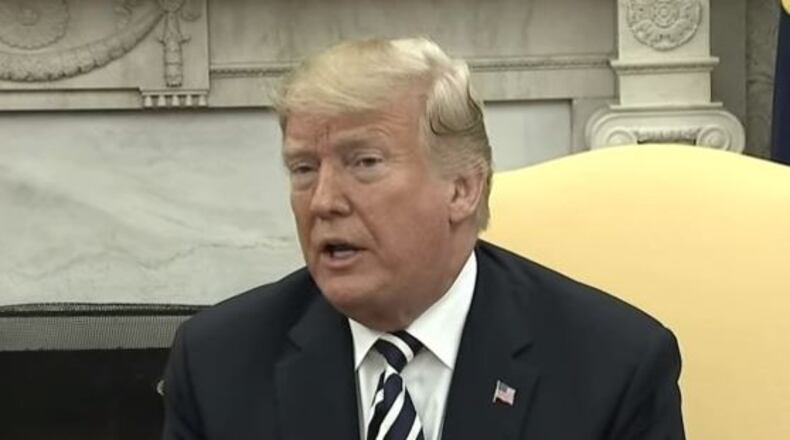"Beyond just the absurdity of labeling the car in your driveway a national security threat, taxing autos through tariffs would have clear economic consequences," said the group Tariffs Hurt the Heartland, as a variety of trade groups weighed in against new duties.
During his time in office, President Trump has made clear he's more than ready to levy new tariffs on imported goods from China, Canada, Mexico, and the European Union.
"Well, you know, you're talking to the wrong person, because I happen to like tariffs, okay?" the President said to reporters when asked Friday about possible new tariffs on China, as he defended tariffs placed on imported steel.
With the submission of this latest Section 232 report on autos, President Trump now has 90 days to determine whether to levy new tariffs, which experts believe would hurt European automakers the most - Volkswagen, Mercedes-Benz, Audi, BMW, and others.
"New tariffs/taxes would be devastating for our auto jobs and American consumers," said Sen. Doug Jones (D-AL), whose state sports auto production plants for Mercedes-Benz, Honda, Toyota, and Hyundai.
"Not only are tariffs a tax but experts agree: cars are not a national security threat," Jones added in a tweet about the new Commerce 232 report.
The European Union on Monday vowed 'swift' retaliation if the President slaps tariffs on imported autos and auto parts - what some fear would create a quickly escalating trade war.
The President has already used his 'national emergency' authority under Section 232 to levy 25 percent tariffs on imported steel, and 10 percent on imported aluminum.
"You know, you can do without certain industries. Our country cannot do without steel," Mr. Trump said Friday, as he made clear he would press for additional tariffs on China, using those duties as leverage for trade talks.
"I love tariffs, but I also love them to negotiate," the President added.
"I urge the president and his administration not to take any action that would threaten our nation’s economic momentum," Rep. Walorski warned on Monday.
Many lawmakers and auto groups wonder if the same thing might happen in their part of the economy soon as well.
About the Author
